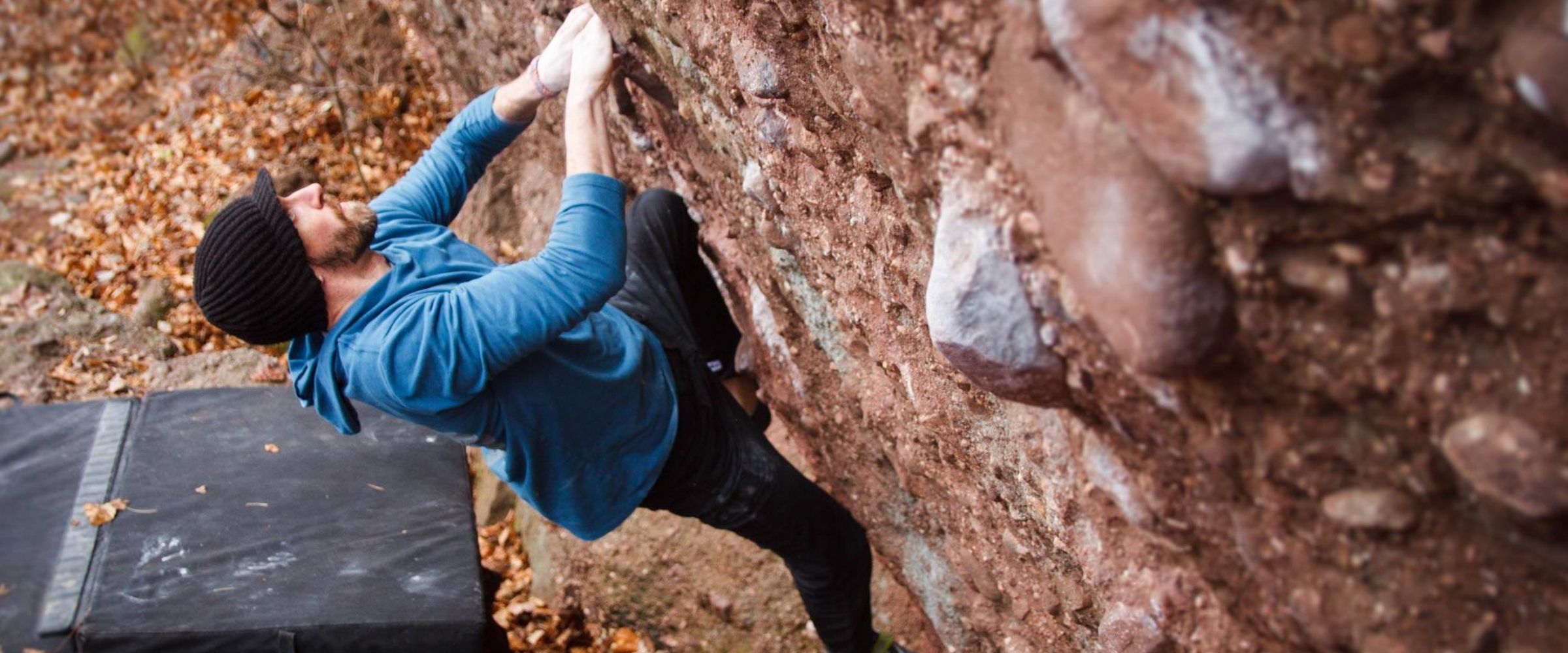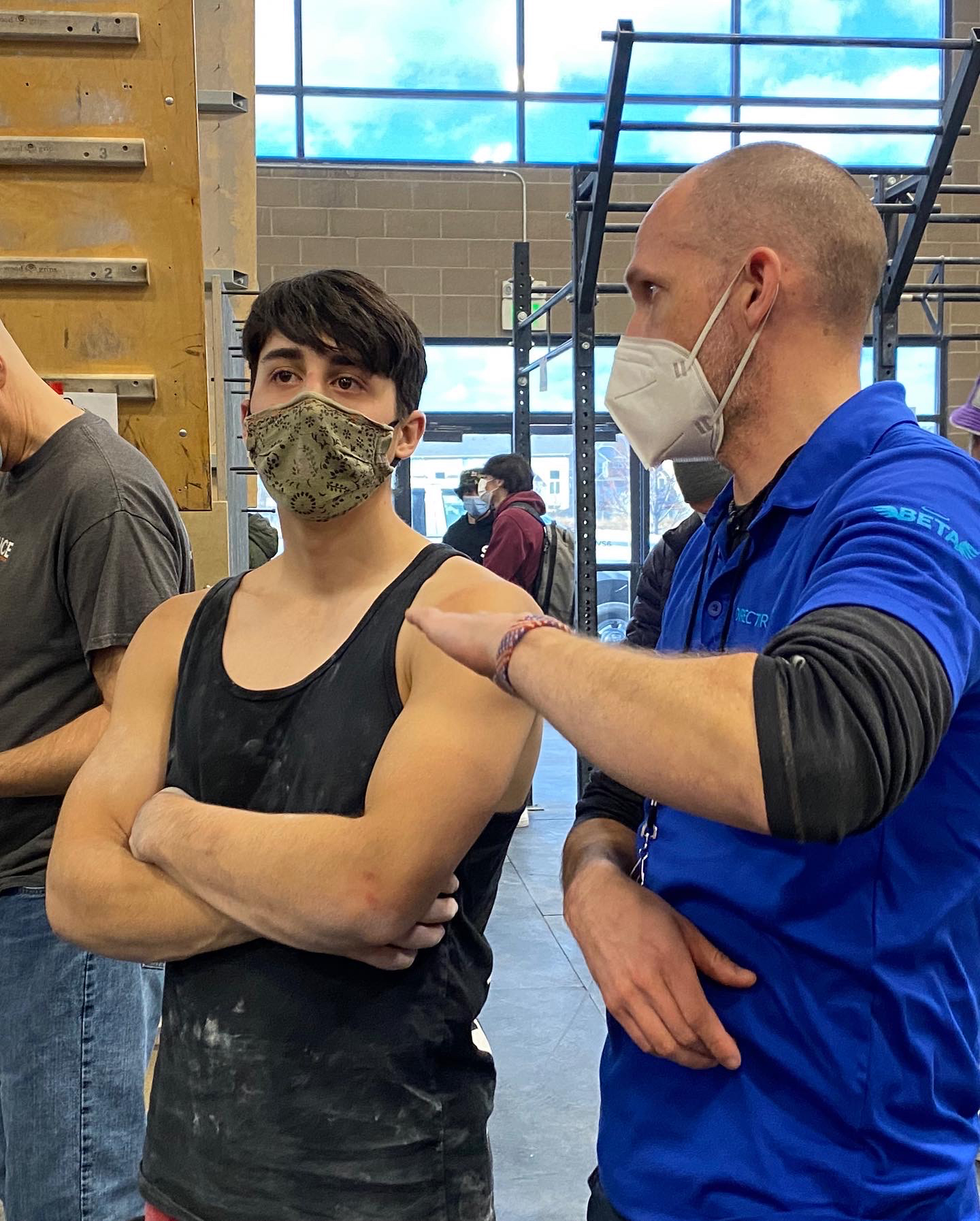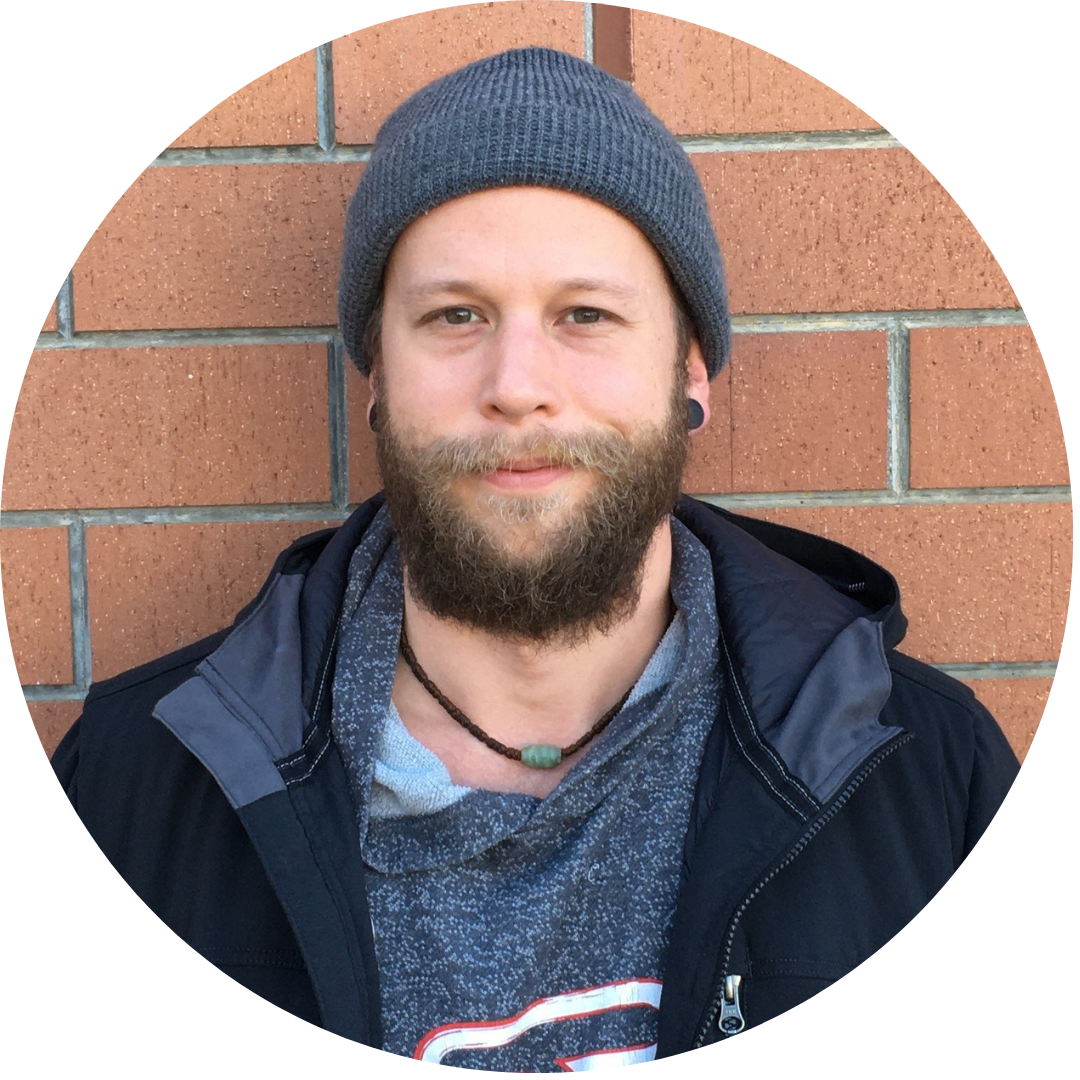Coach Taylor Reed on Training Adults With Intention

What happens when young climbers “age out” from participation in youth teams? What recourse do individuals have if they’ve gotten into the climbing game “too late?”
Adult avenues for professional training or guidance in climbing aren’t always as well established as youth training. Sometimes, adult climbers can feel like they’ve got to figure it out or fend for themselves, which can lead to injury.
Making your gym more open to adult training is a great step in providing access to your entire membership.
Renowned climbing coach and Director of Sportrock Performance Institute Taylor Reed joined me in conversation to discuss the how’s and why’s of adult training programs in indoor climbing facilities.
Colleagues of Taylor Reed will be presenting on leadership teams at the 2022 CWA Summit. You don't want to miss it!
Register Today
This interview has been edited for clarity and brevity.
Chris Oshinski, Head Coach of Sportrock Climbing Centers:
Generally, youth programs are well developed at climbing gyms. For adults, though, options seem much more limited. Is it important to you to offer training options for adult climbers?
 Taylor Reed, Sportrock Performance Institute:
Taylor Reed, Sportrock Performance Institute:
I do, 100%. If an adult wants that kind of training, they should absolutely be given it or given opportunities to develop. I think it’s really important to work with adults and their time constraints, their motivational constraints, and the things they struggle with on a regular basis. I think every climbing gym may be doing it slightly differently and it would be nice if we could communicate, and see what one another is doing, so we can use best practices to support adults in a way that’s better.
Chris:
I know that one of the key features at the Sportrock Performance Institute (SRPI) is the performance assessment.
Taylor:
Right now, we are trying to do three separate performance assessments: a technical performance assessment; a mobility assessment; and a power and force assessment.
Chris:
How do you envision the technical assessment could be utilized for intentional training?
Taylor:
With every assessment that we do, we give the participant a one-page printout of five different areas: 1-2 are strengths, 3-4 are weaknesses. I want to listen to people and see how they’re using these things and then also attempt to be creative about offering ways for them to engage with us while at the same time noting that we only have so much time.
 |
|
Coaching adults is often neglected in climbing gyms. Photo: Taylor Reed coaching. |
Chris:
I know that there had been a menu of items to supplement climbing training. How are these supplemental classes significant to development?
Taylor:
We want individuals to learn from what we see is important to climbing, and offer (especially for adults) more regular training classes where they can come in and get a really good workout under the supervision of somebody who knows what it is that they’re doing.
I’m taking a slow, methodical learning-oriented approach and then touching base with all of the staff to see how we can support, how well can we teach, how often can we teach, etc.
We’re still in learning mode since we’re so new to the world and I hope that we can find the right level, the right types of classes, and the right types of supplementals that we can give to adults, specifically.
Chris:
Do you think there is a correlation between having access to training programs for adults and the development of adults’ coaching ability?
Taylor:
Several adult climbing league members have turned around and taken their competition experience and go to virtually every youth competition and are judging on a regular basis. I can think of one very specific example who was in the leagues and then wanted to coach from there.
We have another individual who is out of the youth circuit now who is very interested in adult training and actually going into the elite circuit and wanted to provide his own experience to youth.
READ ALSO: Coach Your Coaches With This Five-Week Plan
Chris:
With the adult leagues in mind, are there other routes that climbing gyms can pursue to cultivate adult communities?
Taylor:
I think community from the perspective of motivation-building is one of the most important things on the face of the planet; it’s phenomenal, it’s so important to have motivation, and being with other individuals is really important to that motivation.
Chris:
Do you think there are different methods that might be more appropriate for adult instruction vs. youth instruction?
Taylor:
There are definitely certain protocols that I would not use with youth that I would use with adults, but on the other hand, each individual is going to be different from a motivational standpoint, a training age standpoint, genetic standpoint, sociocultural standpoint, and of course a morphological standpoint—all of the different things that we ought to think about.
While there is still much exploration to conduct in the development of adult training programs, this represents a rapidly growing demographic for climbing gyms to tap into.
The cultivation of a strong and passionate community of adults that are well-equipped and inspired to give back to the next generation pays dividends to your gym, your staff, and ultimately – the lives of your members.
There are seven unique coaching courses we have for you at the 2022 CWA Summit. Don't miss them.
About the Author
 Chris Oshinski is the assistant director for Sportrock Climbing Centers Sterling, VA location, passionate for teaching youth and addressing inequalities. Having obtained an MA in Public Sociology in 2018, Chris loves to explore the myriad forms of agency vis-a-vis individual and collective efforts at fostering social justice and human rights.
Chris Oshinski is the assistant director for Sportrock Climbing Centers Sterling, VA location, passionate for teaching youth and addressing inequalities. Having obtained an MA in Public Sociology in 2018, Chris loves to explore the myriad forms of agency vis-a-vis individual and collective efforts at fostering social justice and human rights.
